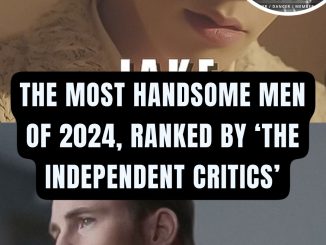
In an unexpected turn of events, renowned actor Jon Voight has caused quite a stir by turning down a multi-million dollar endorsement offer from the NFL , one of the most influential sports organizations in the world. The contract, worth $20 million, included a collaboration with legendary actor Robert De Niro , which promised to be a highly successful advertising campaign. However, what has really captured the attention of the media and the public is the controversial reason behind his decision: Voight publicly stated that he would not work with what he called the “ Woke Creep ,” an expression that has sparked intense debates and speculations about its implications.

An ambitious campaign truncated by ideological differences
The NFL had designed a marketing strategy that sought to combine the popularity of Voight and De Niro to attract a more diverse and global audience ahead of the 2024 season. The idea was to bring together two big Hollywood figures in a joint project, something that film and sports fans were eagerly awaiting. However, this ambitious proposal was abruptly cut short due to Voight’s decision, who, true to his principles, preferred to retire rather than compromise his personal beliefs.
The impact of Voight’s words: freedom of expression or divisive stance?
Voight’s use of the phrase “Woke Creep” has been the subject of analysis on social media and in the media. For some, these words reflect a critical stance towards the “woke” movement, which is associated with social justice, equality and representation. While certain sectors consider this movement essential to building a more inclusive society, others see it as a trend that, according to them, limits freedom of expression and divides communities.
On platforms like Twitter and Instagram , Voight’s followers have applauded his bravery in speaking out, describing him as a champion of authenticity and ideological independence. However, his detractors argue that his stance reinforces divisions at a time when entertainment should be a space for unity and tolerance.
Robert De Niro’s reaction and the NFL’s stance
Meanwhile, Robert De Niro , who was attached to the publicity project, has chosen not to comment on the matter. Sources close to the actor have indicated that De Niro was enthusiastic about the collaboration, despite the political differences that have marked his relationship with Voight over the years. The dynamic between the two has been the subject of speculation on numerous occasions, highlighting how their opposing ideologies may influence their professional decisions.
For its part, the NFL has expressed regret over Voight’s decision in a brief statement, assuring that it will continue with the advertising campaign. Although details about the adjustments to its marketing strategy have not been revealed, it is clear that the organization faces the challenge of reformulating its approach to maintain the expected impact of this initiative.
Hollywood, inclusion and polarization: a debate that transcends advertising
Jon Voight’s rejection has once again brought to the fore the ideological tensions that exist in the entertainment industry. At a time when Hollywood is deeply influenced by social and political movements, Voight’s stance highlights how personal beliefs can impact high-level professional decisions.
The case also highlights the dilemma faced by many public figures : should they remain neutral to avoid controversy or use their influence to defend their principles, even if it could affect their career? The controversy generated by Voight highlights how art, business and ideologies are more intertwined than ever.
How does this affect the NFL’s strategy and advertising landscape?
From a marketing perspective, the situation raises important questions for brands and organizations. Should companies avoid collaborations with controversial figures or seek approaches that promote inclusivity without alienating certain audiences? In the case of the NFL, its reputation as one of the world’s largest sports leagues is at stake, as any wrong move could have significant repercussions for its fan base and sponsors.
Final reflection: a debate that will continue to set trends
Jon Voight’s decision to turn down a $20 million endorsement deal has not only made headlines, but has also sparked a broader debate on issues such as freedom of expression, inclusion and the impact of personal beliefs on the professional realm. While some see it as a courageous and principled act, others see it as a divisive stance that reflects current tensions in society.
What is certain is that this incident will have lasting repercussions, both in the entertainment industry and in the world of marketing. Voight’s story and his decision to reject the NFL’s offer will go down as an emblematic example of how ideological differences can influence potentially lucrative collaborations. It also raises crucial questions about how companies and public figures can balance authenticity, inclusion and commercial success in an increasingly polarized world.


